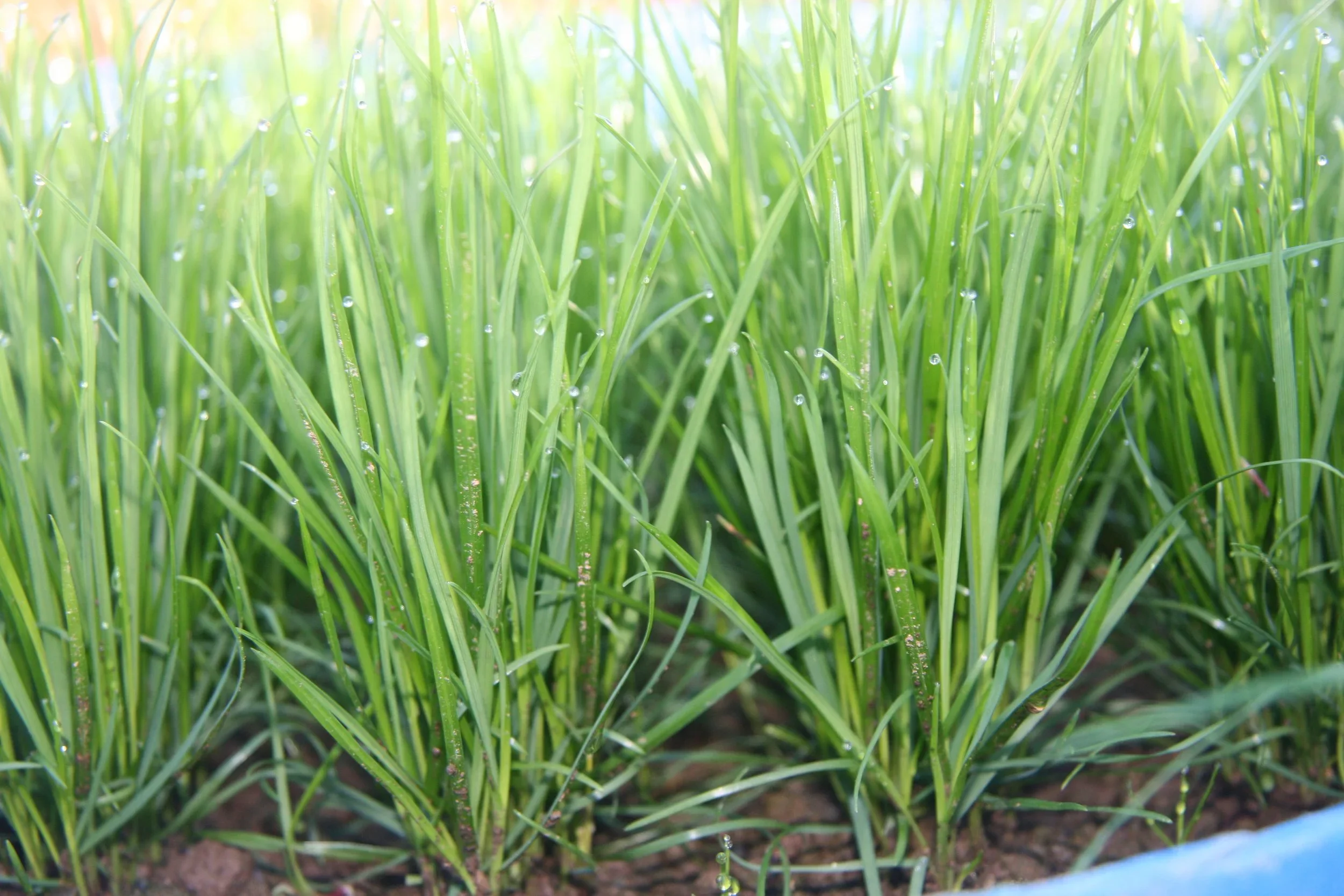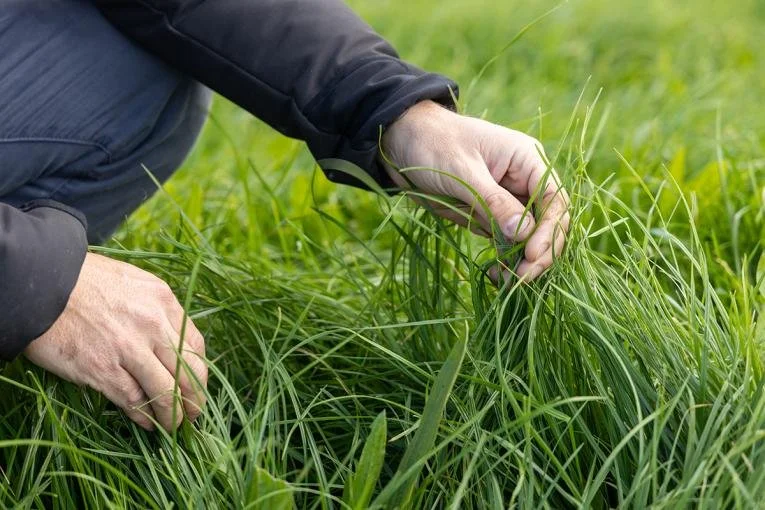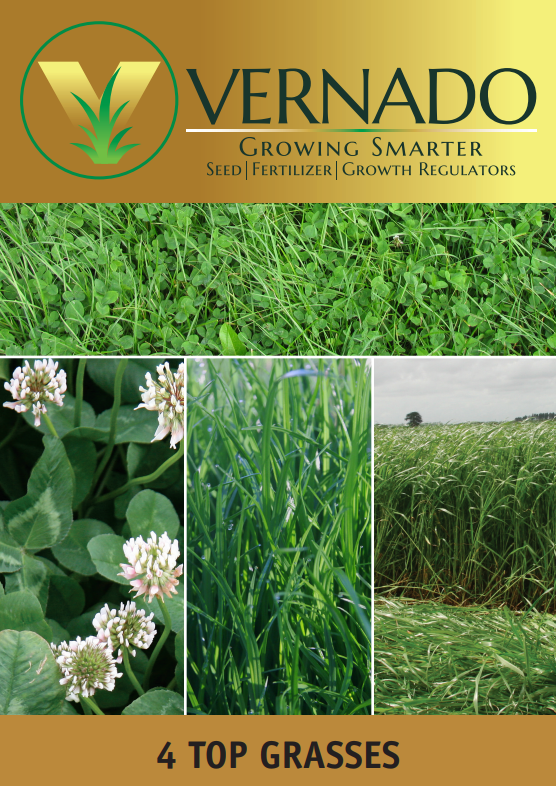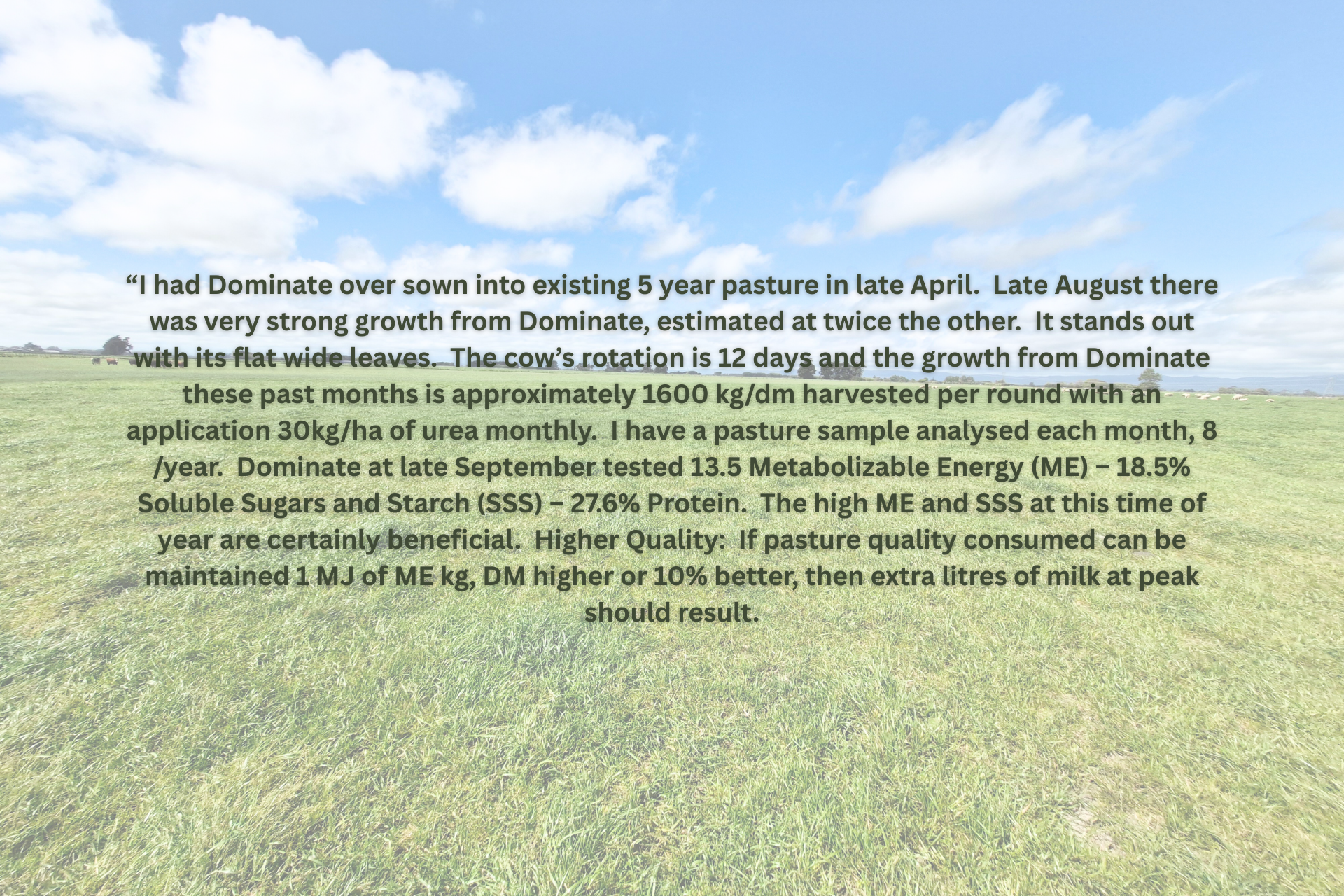
Perennial Ryegrass
Digestibility makes the difference
Our focus is on delivering perennial ryegrass that truly drives livestock performance — with exceptional digestibility, high ME, and strong dry matter production to maximise animal health and pasture utilisation.
While much of the industry has shifted attention toward protecting the plant, we believe the real gains come from improving what feeds your stock. Our ryegrasses are selected for genuine on-farm results — healthier animals, better conversion, and more profit per hectare.
Perennial Ryegrass remains the backbone of New Zealand’s pastoral farming, valued for its adaptability, persistence, and productivity across a wide range of conditions. But not all ryegrass is created equal.
Variety's of Perennial Ryegrass
Stride (Tetraploid)
Late heading date;
High sugar and high digestibility;
Very palatable;
Strong rust resistance;
Typically 5+ years production.
Sowing: 30-35 kg/ha alone, or does well in mixes
Supremacy (Diploid)
Mid heading date
Hardy proven across NZ
Dense Tillering
Good DM and rust resistance.
Sowing: 25-30 kg/ha alone, or does well in mixes
Seed varieties of high digestibility which increases the potential DM intake and energy density, resulting in a higher milk/meat yield, Trials have shown if the digestibility of forage (D-value) is one unit better, and enough forage is available a cow can give 0.2 L-0.25 L more milk per day!
Vernado where possible likes to provide a high digestibility value (High D) pasture in view of increasing animal performance and health.
Algira (Tetraploid)
Very early heading date;
High winter hardiness;
High sugar and high digestibility;
Very palatable;
Strong rust resistance.
Sowing: 30-35 kg/ha alone, or does well in mixes
Other proprietary varieties available
• Hustle RGT18 – AR1, Diploid
. Nui - LE / AR1, Diploid
• Moxie – AR1, Diploid
• Legion – AR37 / AR1 / LE, Diploid
• Align – AR37 / AR1, Tetraploid
• Governor – AR37 / AR1 / LE, Diploid
• Platform – AR37 / AR1, Diploid
• Maxsyn – NEA12 / NEA4 / LE, Diploid
• 4 Front – NEA2 / LE, Tetraploid
• Ultra – AR1 / LE, Diploid
• Avatar CM142 – NEA / LE, Tetraploid
• Nouga – Tall Fescue
• Greenly II – Cocksfoot
. Plus many more please Enquiry




